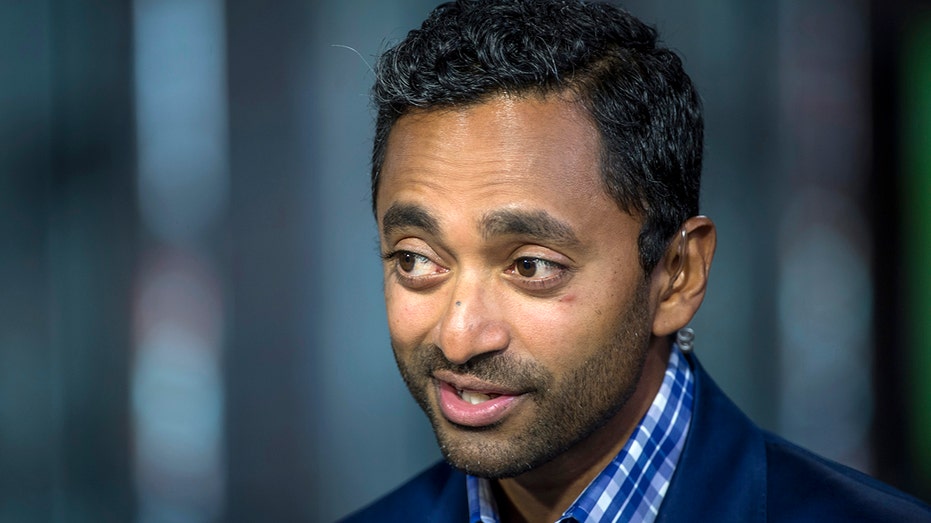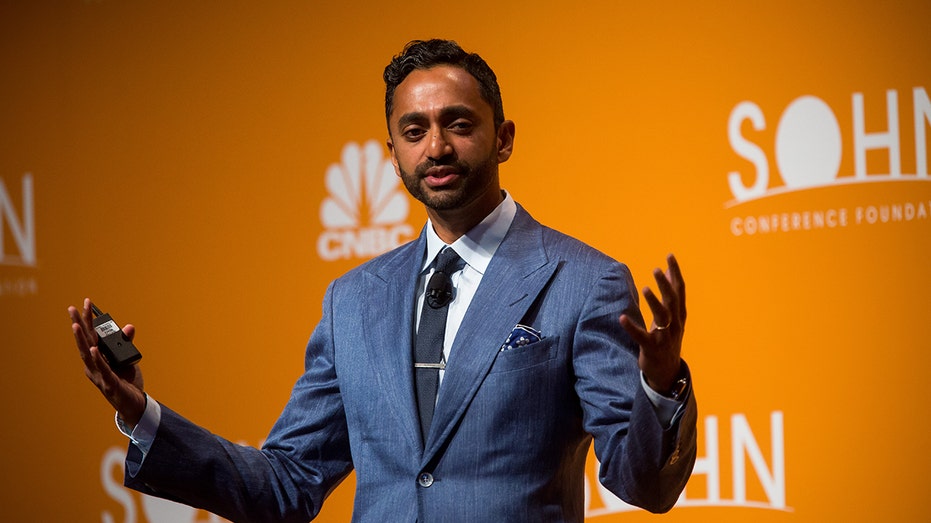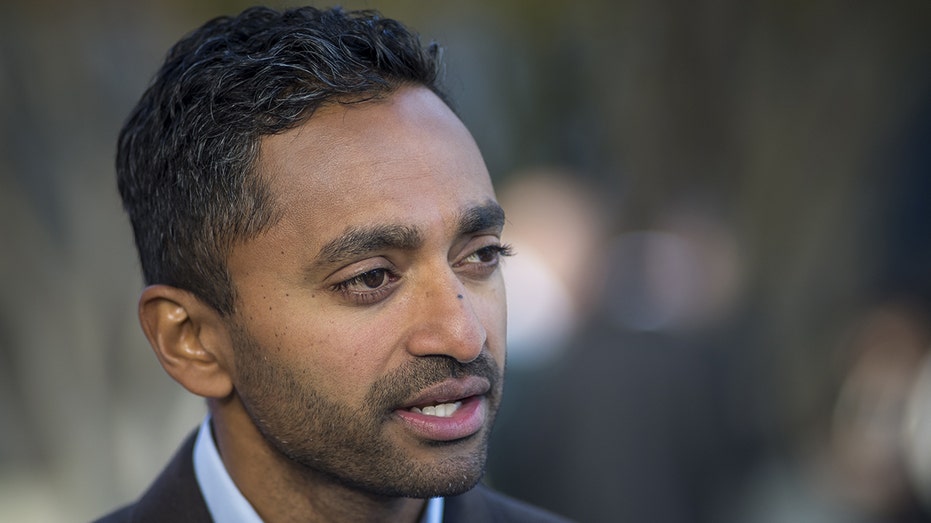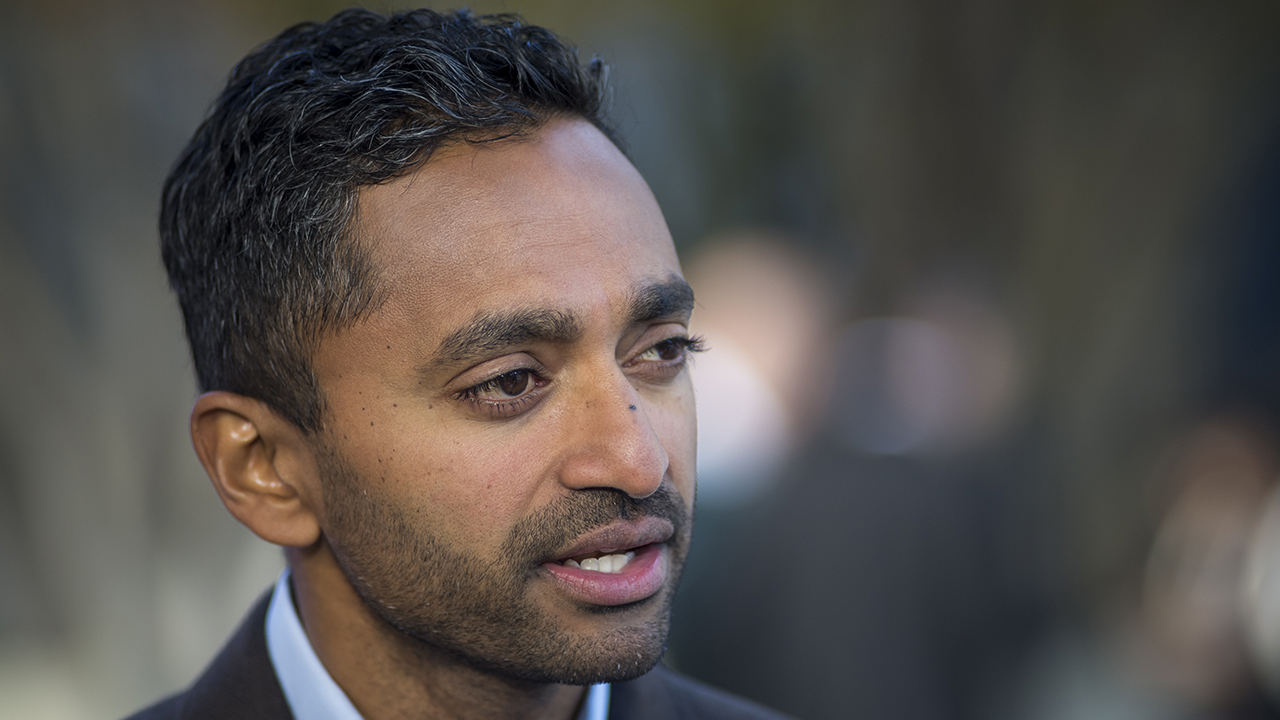Warriors part-owner and venture capitalist attempts to clarify scathing remarks on Uyghur Muslims
Chamath Palihapitiya is the founder and CEO of Social Capital
Chamath Palihapitiya, the Golden State Warriors’ part-owner and founder and CEO of Social Capital, attempted to clarify his scathing remarks about the human rights abuses faced by Uyghur Muslims in China on Monday.
Palihapitiya appeared on the "All-In Podcast" and said "nobody cares" what’s happening to Uyghur Muslims in China. His remarks created a ton of outrage.
CLICK HERE FOR MORE SPORTS COVERAGE ON FOXBUSINESS.COM

Chamath Palihapitiya, founder and managing partner for Social+Capital Partnership, speaks during a Bloomberg West Television interview in San Francisco, California, U.S., on Thursday, Oct. 8, 2015. (David Paul Morris/Bloomberg via Getty Images / Getty Images)
"In re-listening to this week’s podcast, I recognize that I come across as lacking empathy. I acknowledge that entirely," he said in a statement Monday. "As a refugee, my family fled a country with its own set of human rights issues, so this is something that is very much a part of my lived experience.
"To be clear, my belief is that human rights matter, whether in China, the United States, or elsewhere. Full stop."
The Warriors also released a statement earlier in the day, distancing themselves from the remarks.
"As a limited investor who has no day-to-day operating functions with the Warriors, Mr. Palihapitiya does not speak on behalf of our franchise, and his views certainly don’t reflect those of our organization," the Warriors said in a statement.
He made his remarks about Uyghur Muslims on Saturday after his co-host Jason Calacanis praised President Biden for his decision to ban the import of goods made through forced Uyghur labor.
WARRIORS PART-OWNER AND VENTURE CAPITALIST DISMISSES UYGHUR MUSLIMS' RIGHTS ABUSES

Chamath Palihapitiya, founder and chief executive officer of Social Capital LP, speaks during the 21st annual Sohn Investment Conference in New York, U.S., on Wednesday, May 4, 2015. (Michael Nagle/Bloomberg via Getty Images / Getty Images)
"Nobody cares about what’s happening to the Uyghurs, OK? You bring it up because you really care, and I think it’s nice that you care. The rest of us don’t care. I’m just telling you a very hard, ugly truth. Of all the things that I care about, yes, it is below my line. Of all the things that I care about, it is below my line," Palihapitiya said.
When co-host David Sacks said it’s just not top of mind for most people, Palihapitiya pushed back.
"That’s not caring. … I care about the fact that our economy can turn on a dime if China invades Taiwan. I care about climate change. I care about America’s crippling and decrepit health care infrastructure. But if you ask me do I care about a segment of a class of people in another country? Not until we can take care of ourselves will I prioritize them over us," Palihapitiya said.
"And I think a lot of people believe that, and I’m sorry if that’s a hard truth to hear, but every time I say that I ‘care about the Uyghurs’, I’m really just lying if I don’t really care, and so I rather not lie to you and tell you the truth. It’s not a priority for me."
Calacanis called it a "sad state of affairs" when human rights issues are being put on a back burner. Palihapitiya called it a "luxury belief."
"That’s another luxury belief. And the reason I think it’s a luxury belief is because we don’t do enough domestically to actually express that view in real tangible ways. So until we actually clean up our own house, the idea that we step outside of our borders with us sort of morally virtue signaling about somebody else’s human rights track record it’s deplorable," he added.

Chamath Palihapitiya, co-founder and chief executive officer of Social+Capital Partnership LLC, speaks during a Bloomberg Technology television interview at the Vanity Fair New Establishment Summit in San Francisco, California, U.S., on Wednesday, Oc (David Paul Morris/Bloomberg via Getty Images / Getty Images)
The Biden administration’s import law was signed in December. It was the country's latest attempt to get tough with China over its systemic and widespread abuse of Muslim Uyghurs in the Xinjiang region of the country.
GET FOX BUSINESS ON THE GO BY CLICKING HERE
China has denied any abuses, claiming the steps it has taken were necessary to combat terrorism and separatist movements.
The Associated Press contributed to this report.





















